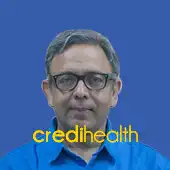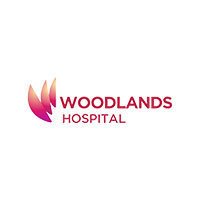Anxiety is a common symptom that people nowadays face. Even so, children are also affected by the symptoms of anxiety. If anxiety becomes severe, it could result in other disease conditions. This article will delve into the symptoms, causes, treatment, and preventive measures. Anxiety attacks are also important to deal with. Therefore, we will talk about everything in detail, which will help you to reduce your level of anxiety.
| Causes | Musculoskeletal problems, Respiratory problems, Respiratory problems |
|---|---|
| Remedies | Stay Active, Good Night Sleep, Balanced diet |
| Preventive Options | Limit alcohol, Write Journal, Counselling |
| Treatment Options | Psychotherapy, Medications(SSRI, SNRI) |
| Specialist | Psychiatrist |
In medical terms, anxiety meaning is the feeling of worry, nervousness, and unreal fear. It is sometimes difficult to control, and you will also see other associated symptoms. We have included some symptoms and detailed causes which will help you and your therapist resolve your worry and nervousness. People who get panic quickly have shown low confidence. Therefore, a therapist helps you to build confidence with proper treatment. Let's dive into the topic deeply for more information.
What is the symptoms of anxiety? Many symptoms anxiety and depression are given. If you are feeling one of them, consult a doctor or contact creadihealth.com for more assistance.
All these are a list of symptoms for anxiety. It might vary from person to person.
There are many types of anxiety that we generalize according to it. This helps to understand the cause so that the therapist can start therapy according to the type of anxiety given in the following.
Agoraphobia
This type of anxiety disorder means that a person has a fear and escapes those situations and places where they feel trapped and helpless. This includes fear of leaving home alone, avoiding crowds, enclosed spaces, and public transportation.
Generalized Anxiety Disorder
Generalized anxiety disorder is when a person feels anxious and finds difficulty in controlling the fear of worries. This might occur due to the interference with day-to-day activities. The symptoms may include persistent worrying, overthinking, fear of making the wrong decisions, inability to relax, going blank, fatigue, and other symptoms already mentioned in the above paragraph.
Panic Disorder
Panic disorder is another type of anxiety that involves a person who has a sudden episode of intense fear that usually convert into physical symptoms such as increased heart rate, sweating, chest pain, joint pain, body ache, nausea, and headache.
Selective Mutism
It is another type of anxiety disorder that means a person cannot speak or communicate at social events. For instance, school, work, or any community events. Less than 1% of children are estimated to suffer from selective mutism. The symptoms are fear, anxiousness, embarrassment, shyness, and avoid eye contact.
Separation Anxiety Disorder
This type of anxiety is usually what you will see in infants and toddlers. Separation anxiety is a sign that something is wrong with a baby. It could be prolonged and may interfere with the performance of the child. The symptoms may include excessive worry, not wanting to live alone at home, nightmares, headaches, etc.
Specific Phobias
Some phobias provoke anxiety. Let's see what these are. The phobia is a fear that worsens the case of it, in some situations like airplanes, closed spaces, heights, animals, insects, blood, injection, choking, vomiting, and loud noises.
Substance-Induced Anxiety Disorder
The substance-induced anxiety disorder usually occurs in those who consume drugs or alcohol. About 30% of people have gone through a substance-induced anxiety disorder. You will notice excessive sweating, shakiness, dizziness, low energy, and shortness of breath.
What is a panic attack?
A panic attack is when a person feels intense fear and mimics a heart attack. The symptoms may get worse if the triggering point is not removed. The panic or anxiety attack symptoms are given in the following.
This might include stress, medical conditions like depression or diabetes, environmental concerns like child abuse, substance use, surgery, or occupational hazard. The treatment we will read the treatment section. The symptoms of anxiety attacks are crucial to monitor.
What is causes anxiety? It would be best to see many causes of anxiety to avoid the triggering points of a person feeling anxious every time. The causes are given in the following.
Genetics also play a role because genes inherit by children and cause anxiety if their family suffers from anxiety.
Brain chemistry
The fluctuation in the electrical circuits of the brain may cause anxiety and other mental problems.
It is imperative to diagnose the symptoms of anxiety. Therefore, you need a specialist to diagnose anxiety. They will ask you different questions and medical history. There are many tests to know the accurate diagnosis. We have listed a few of them down below, which help doctors to diagnose anxiety. The psychiatrist or mental health specialist helps you to get proper treatment.
1. Zung Self-Rating Anxiety Scale
In this therapist will ask you 20 questions and rate your anxiety from a little to most of the time. The subjects are nervousness, shaking, rapid heartbeat, frequent urination, and so on.
2. Hamilton Anxiety Scale (HAM-A)
This test was developed in 1959. It is still widely used in clinical areas and for research purposes. This involves 14 questions that rate your mood, fears, tensions, and mental and behavioral traits.
3. Beck Anxiety Inventory (BAI)
The severity of anxiety depends on the 21 MCQs, where the doctor rates your anxiety according to the answers given by the patient or a person. This includes not at all, mildly, moderately, or severely.
4. Social Phobia Inventory (SPIN)
There are 17 questions in which a person self-assessed their scores. It indicated the severity of anxiety from zero to four. Zero shows no anxiety at all. Whereas four is directly related to the extreme case of anxiety.
Other tests are Penn State Worry Questionnaire, Generalized Anxiety Disorder Scale, Yale-Brown Obsessive-Complusive Scale (YBOCS), and so on.
Many treatment options for anxiety include therapies and medicines that help you reduce anxiety symptoms. We have listed some of these in brief. Must read the medicines and their uses. However, we recommend you consult the doctor if you are planning for any treatment options.
This is a therapy used for anxiety patients. A therapist will talk to or counsel the patient. This helps to reduce the stress, and the patient ventilates their feelings to the therapist. Another therapy, called cognitive behavioral therapy, is quite effective for anxiety disorders. A short-term CBT mainly focuses on the skills to improve the symptoms. This includes exposure therapy in which a patient is exposed to triggering points, which makes them confident to deal with the situation without any anxiety.
Many medications help the anxious patient to recover. Many classifications help you to identify the medication. Having some knowledge about the medication is critical, which will also help you with the right usage. However, all these medications are prescribed, so the correct dosage and right medications should be consulted with an expert.
There are many antidepressants for anxiety disorder. In addition, anti-anxiety medications called buspirone are commonly used medication.
1. Benzodiazepines
Treat short-term anxiety symptoms. They work by increasing the activity of a neurotransmitter called GABA
2. Beta-blockers
Treat hypertension and heart conditions vessels.
Are you searching for how to overcome anxiety? Many factors can prevent you from anxiety. However, a correct lifestyle will prevent you from having mental issues. Therefore, it is important to see what kind of work we are involved in. Let's see what are these amazing factors that keep us mentally healthy.
1. Physically Active
When you involve yourself in physical work, this helps you to reduce stress. This improves your mood and helps you stay healthy. You can increase the intensity of the exercise and fall early at night without overstressing on the imaginative topics.
2. Avoid Alcohol and Drugs
Alcohol and other drugs are quite harmful to the central nervous system and majorly impact the brain's functionality. Therefore, it is essential to quit alcohol and drugs.
3. Stress Management
Many techniques help you regulate stress management, which eases anxiety symptoms. These include visualization techniques, meditation, and yoga.
4. Eat Healthy
Healthy foods are crucial to maintaining physical and mental health. Many foods reduce anxiety, like fruits, grains, and fish.
5. Proper Sleep
Proper sleep is important because enough sleep reduces irritability and your brain works properly after the rest. A tired brain leads to the wrong decisions, fear, and anxiousness.
You must be wondering what I should do If I have a severe panic attack. You do not need to first worry about it. You can ask your doctor. However, you should first when you need to go. Let's look at some warning signs.
If you have anxiety and are concerned about your health, it is important to seek immediate medical attention from a qualified anxiety doctor. A doctor specializing in treating anxiety, such as a Psychiatrist, would be the right health professional to consult.
Here is a list of Top verified doctors for anxiety. You can book an appointment with one to start your anxiety treatment today.

Manipal Hospital, Hebbal, Bangalore

Manipal Hospital, Ghaziabad
Rs. 1,200 Consult Fees

Sitaram Bhartia Institute of Science and Research, New Delhi, Delhi NCR
Rs. 4,250 Consult Fees
A hospital can provide various services to help diagnose and treat your anxiety. If you are experiencing anxiety In that case, it is important to visit a anxiety hospital for a proper diagnosis and treatment plan.
Check a list of Top Hospitals for anxiety treatment.
Multi Speciality Hospital
Established in 1918
🛌345 Beds
.png)
Multi Speciality Hospital
Established in 1940
🛌220 Beds

Multi Speciality Hospital
Established in 1947
🛌230 Beds
Frequently asked questions and answers about anxiety.
What causes anxiety?
Anxiety can be caused by a variety of factors, including genetics, brain chemistry, and life events.
What are 5 signs you have anxiety?
Five signs of anxiety can include excessive worry or fear, restlessness or irritability, difficulty concentrating, fatigue or difficulty sleeping, and physical symptoms such as muscle tension or trembling.
What are the symptoms of anxiety?
Symptoms of anxiety can include excessive worry, nervousness, irritability, fatigue, and difficulty concentrating. Physical symptoms may include muscle tension, headaches, and stomach upset.
What is the best way to deal with anxiety?
The best way to deal with anxiety include therapy, medication, lifestyle changes such as exercise and healthy eating, stress-reducing activities such as yoga or meditation, and social support.
How is anxiety treated?
Treatment for anxiety typically includes therapy, medication, or a combination of both. Cognitive-behavioral therapy, which helps individuals identify and change negative thought patterns, is commonly used to treat anxiety. Medications such as antidepressants and anti-anxiety medications may also be prescribed.
What is the main cause of anxiety?
The main cause of anxiety can be complex and can include factors such as genetics, brain chemistry imbalances, traumatic life events, and underlying medical conditions.
Reviews by patients on different.
Ramesh Singhania
Manipal Hospitals
Dr. Abir is the most amazing doctor. Several months ago I started feeling very depressed. I did not know it was something major until I started having flashbacks. My parents asked me to go to a psychiatrist. Dr. Abir listened to all my problems calmly. I was unable to explain some points to him but he allowed me to speak and helped me understand my emotions in a better way. I had PTSD. He gave me some medicines and asked me to take therapy. I am so glad that the phase was over before I knew it. I totally recommend it.
Swasti Jain
Manipal Hospitals
I was diagnosed with major depressive disorder. It was a very difficult time in my life and I had no clue what to do. The doctor I was seeing gave me some medicines that had terrible side effects. I could not eat or sleep for many days. Then I decided to change my doctor. I met Dr. Abir through credihealth. He is brilliant. He knew exactly what the problem was. He heard me patiently and gave me such medicines that had no side effects. I felt positive and in some months I was doing just fine.
Sakar Shrivastava
Manipal Hospitals
Dr. Abir is among the most friendly doctors I have met. I had been having many mood swings for a long time. I thought it was only a time in my life that would be soon over but then there were other things. I noticed many changes in how I lived my life and how I reacted around people. Dr. Abir was the person who made me realize that there was some problem. He told me I had a borderline personality disorder. I continued the treatment and now I feel far better.
Credihealth is an online healthcare portal for all your hospital appointments, diagnostic test bookings, ordering medications, or homecare services. If you have any inquiries, our in-house medical experts can help solve them and guide you to the best specialist in the India.